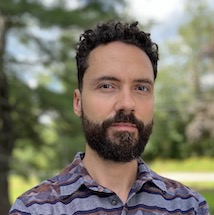Túlio Zille: Research Summary

Overview
Túlio Zille's research and teaching interests span topics in development, post-colonial and decolonial studies, political ecology, indigenous thought, critical theory, and social movements. He also has a parallel interest in the politics of humanitarian interventions, and in feminism and queer theories. His work focuses generally on Latin America and the Global South (broadly construed to include people of color in the North).
Current Work
Zille's current book project looks at the construction of the Belo Monte dam in the Brazilian Amazon to explore two major themes: how development continues to reflect a modern worldview that is in part responsible for the current ecological crisis, and what compelling possibilities are offered by alternative ways of living that development disavows.
The book offers a theory of the relationship between humans and the environment to assess the impact of dams, looking beyond conventional metrics, such as the number of displaced persons, insufficient compensation policies, and visible changes in the regional ecosystem. In order to do this, the research takes seriously the possibility that the relationship between locals and their environment is not simply the fruit of cultural belief but constitutes a reality in itself. Zille elucidates how the dam development overlooked or ignored local ways of living by taking for granted the separation between nature and humans and their culture. This separation resulted in the devastation of life because it did not account for the fact that the relationship with the river and land was irreplaceable by compensatory measures. Moreover, by showing examples of displaced riverside dwellers who had migrated to the region in recent generations, Zille advances the argument that these local ways of living can be learned directly with the environment and nonhumans, and not solely through ancestral or traditional cultures, contrary to what is commonly assumed in public and academic discourse.
Student Opportunities
Zille encourages students to take his courses, which include The Politics of Dissent in Latin America, Race and International Relations, and Global Political Ecology. Outside of the classroom, he invites students to continue the dialogue with each other and with him, and he is widely available for personal meetings. He also enjoys taking part in events on campus and is happy to collaborate with student groups and clubs.